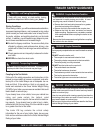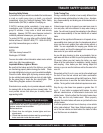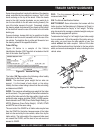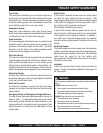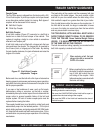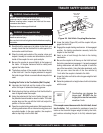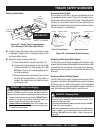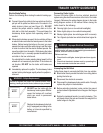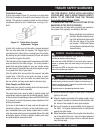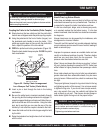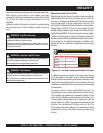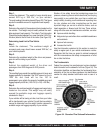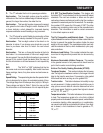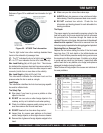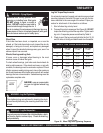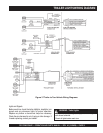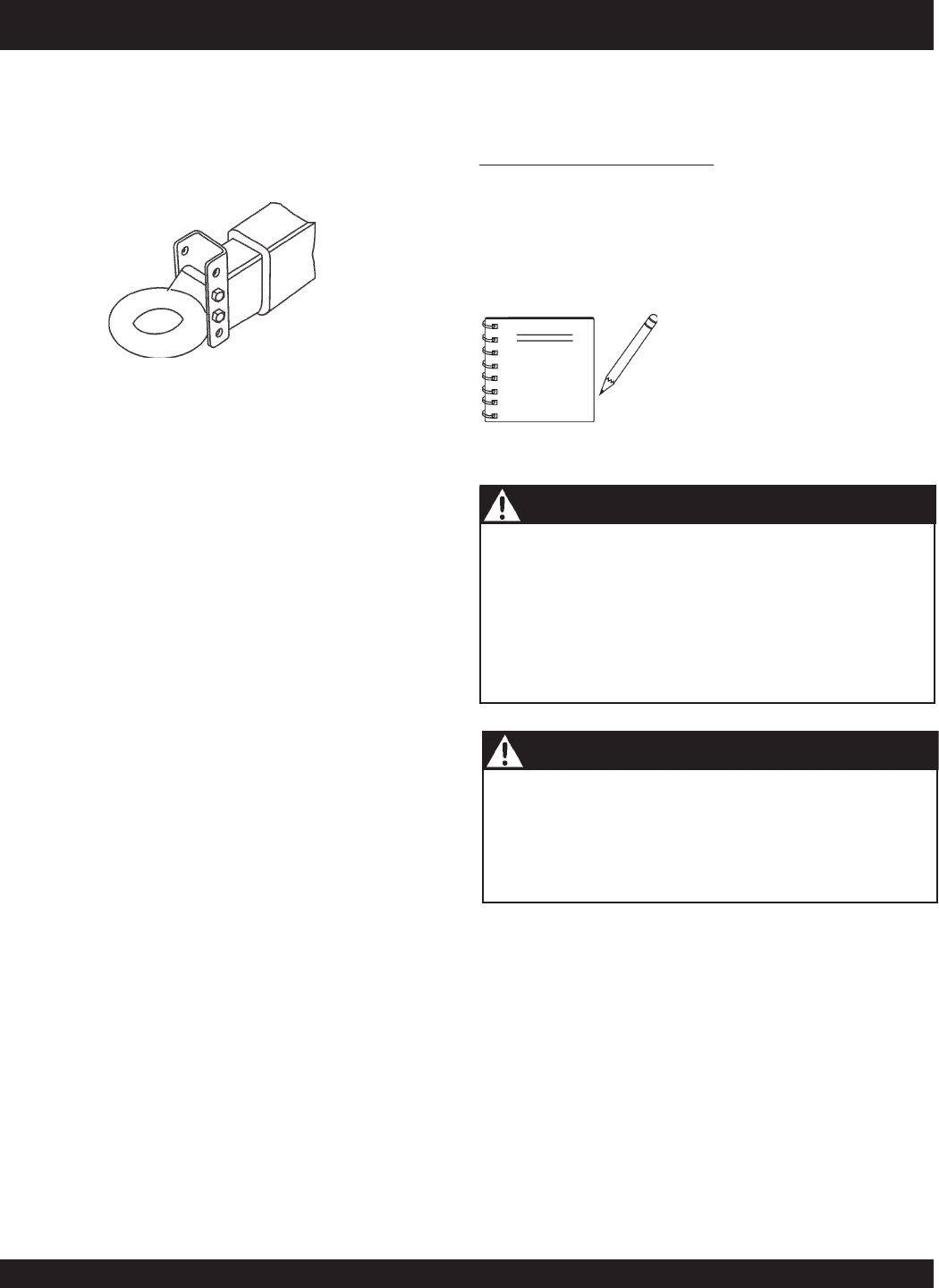
PAGE 44 —DRY PRIME PUMP — OPERATION MANUAL — REV. #3 (10/06/08)
Pintle Hitch Coupler
A pintle eye coupler (Figure 31) connects to a pintle-hook
hitch that is located on or under the rear bumper of the tow
vehicle. This system of coupling a trailer to a tow vehicle is
sometimes referred to as a “lunette eye, tow ring or G.I.
hitch.”
THE TOW VEHICLE, PINTLE HITCH AND PINTLE
COUPLER MUST HAVE A RATED TOWING CAPACITY
EQUAL TO OR GREATER THAN THE TRAILER
Gross Vehicle Weight Rating (GVWR).
IT IS ESSENTIAL THAT THE PINTLE HITCH BE OF THE
SAME SIZE AS THE PINTLE COUPLER.
The coupler size and load rating (capacity) are marked on
the coupler; hitch capacity is marked on the hitch.
A pintle hitch trailer may be fitted with a tongue jackstand
that can raise and lower the coupler. The tongue jack is
mounted to the A-frame (front, or tongue) part of the trailer.
By rotating the jack handle clockwise, the jack will extend
and raise the tongue of the trailer.
The load rating of the coupler and the necessary pintle hitch
size are listed on the trailer tongue. You must provide a
pintle hitch and pintle coupler for your tow vehicle, where
the load rating of the pintle hitch and pintle coupler is equal
to or greater than that of your trailer.
Also, the pintle hitch size must be the same as the pintle
coupler size. If the hitch is too small, too large, is under-
rated, is loose or is worn, the trailer can come loose from
the tow vehicle, and may cause death or serious injury.
Pintle Coupler and Pintle Hook
Before each tow, check the locking device that secures the
coupler to the pintle hook assembly.
The pintle hook lever must be able to operate freely and
automatically snap into place into the latched position. Lightly
oil the pivot points and sliding surfaces with SAE30W motor
oil to prevent rust and help ensure proper operation of the
latching mechanism.
If you see or feel evidence of wear, such as flat spots, de-
formations, pitting or corrosion, on the pintle hook or cou-
pler, immediately have your dealer inspect them to deter-
mine the proper action to prevent possible failure of the ball
andcoupler system. All bent or broken coupler parts must
be replaced before towing the trailer.
Figure 31. Pintle Hitch Coupler
Adjustable Tongue
NOTE
Before coupling the tow vehicle to
the trailer, be sure the size and rat-
ing of the pintle-hook hitch match
the size and rating of the pintle
eye coupler. Pintle-hook hitches
and couplers are marked with their
size and rating.
A worn, cracked or corroded pintle hitch hook can fail
while towing, and may result in death or serious injury.
Before coupling trailer, inspect the pintle hitch hook for
wear, corrosion and cracks.
Replace worn or damaged pintle hitch hook.
Coupler-to-hitch mismatch can result in uncoupling,
leading to death or serious injury.
Be sure the LOAD RATING of the pintle hitch hook is
equal or greater than the load rating of the pintle eye
coupler.
Be sure the SIZE of the pintle hitch hook matches the
size of the pintle eye coupler.
WARNING - Hitch Ball Load Rating
WARNING - Defective Pintle Hitch Hook
Rock the pintle eye coupler to make sure it is secured
tightly to the hitch.
Wipe the inside and outside of the pintle coupler, clean
and inspect it visually for cracks and deformations; feel
the inside of the coupler for worn spots and pits.
Be sure the coupler is secured tightly to the tongue of
the trailer. All coupler fasteners must be visibly solid
against the trailer frame.
Raise the bottom surface of the coupler to be above the
top of the pintle hitch hook. Use the tongue jackstand
to support the trailer tongue. Wood or concrete blocks
may also be used.
TRAILER SAFETY GUIDELINES



